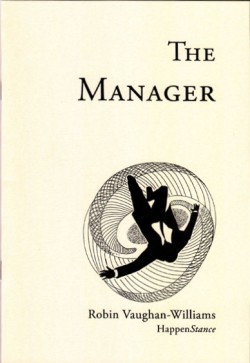It was an elegant start to the Nottingham Festival of Words on Saturday with a day of poetry and storytelling at Newstead Abbey, Byron’s ancestral home. Poets travelled from Oxford (Nigel Thompson), Middlesborough (Andy Croft), Derby (Mark Goodwin), and Sheffield (Chris Jones and publisher Brian Lewis), and it was great to see how many people had made the journey to see what was going on.
In the early afternoon our 7-week-old baby had her first experience of a poetry reading, sitting quietly through 30 minutes of CJ Allen (not a difficult thing to do, as she can’t laugh yet) with just the occasional appreciative squeak. Newstead Abbey will be an amazing place to take her when she’s older, with winding paths, waterfalls, and a rockery…loads of places to run around and explore.
At tea time it was Poetry, Landscape, and Radicals, a triple-bill featuring ‘Outskirts and Outposts’ from Longbarrow Press, Christy Fearn on Byron the First Rockstar, and three poets from Smokestack Press.
I’m not sure if that’s the way we planned it, but it was a coherent as well as varied programme, with each part of the programme picking up on the location in some way—the landscaped environs, and Byron’s legacy in terms of the culture of celebrity and political radicalism. I was also struck by how all three used these different threads to draw together the contemporary and the historical.
In Russian there are two different words for ‘landscape’. Peisazh is borrowed from the French and refers to the landscape painting—landscape as representation. Landshchaft is borrowed from the German and refers to the landscape in nature—landscape as object. The Longbarrow reading took the landscape poem (peisazh) and stuffed it with a contemporary urban and semi-urban landschaft, giving the genre a social dimension that we perhaps often forget about.
Produced by Brian Lewis, the performance brought together the contrasting voices of Chris Jones, Mark Goodwin, and Matt Clegg (in absentia, via audio recording). While Chris’s reading suggested a coherent voice, Mark’s did the opposite, with bold line breaks that cut into the middle of words breaking up the conventional rhythm and syntax. The effect was to dehumanise the voice, creating the impression of a speech made up of lots of little packets of data and lacking an underlying intentionality. It reminded me of those digitally produced announcements you get in railway stations and on call centre menus where oddities in the spacing between words indicate the synthetic nature of the announcement—that it’s been stitched together from samples—creating a sense of disembodiment, of a voice that has no speaker (unless we want to admit a system as a speaker), of a corporation masquerading its personhood.
This seemed very fitting, given that while a human presence in the landscape genre is often absent or neglected, in these poems, as Brian explained in his introduction, there is a persistant social presence, derelict landscapes rarely truely vacant.
Later on, Andy Croft introduced a raucous reading from himself and Smokestack poets Mike Wilson and Nigel Thompson. It was interesting to hear Andy’s explanation of how his approach to publishing has changed over the years. Whereas Smokestack started out focusing on leftwing, leftfield writing, now he’s looking for comedy, rhyme (music), and anger, qualities he feels are in short supply.
We heard a few snippets from their contributions to Donny Johnny, a modern satirical take on Byron’s Don Juan that I’m looking forward to when it comes out from Five Leaves Publications in the next year. In it we’ll see DJ in various guises, as a food critic, prisoner, creative writing tutor, and retired rockstar, among other things.
